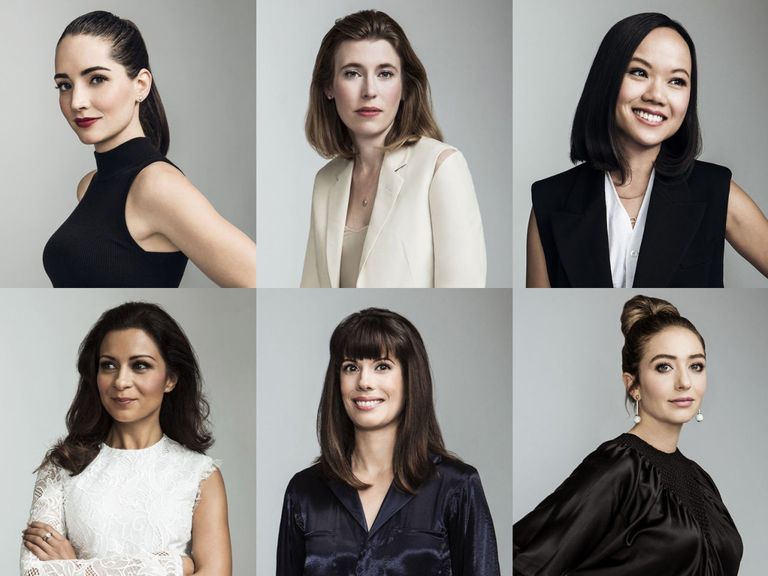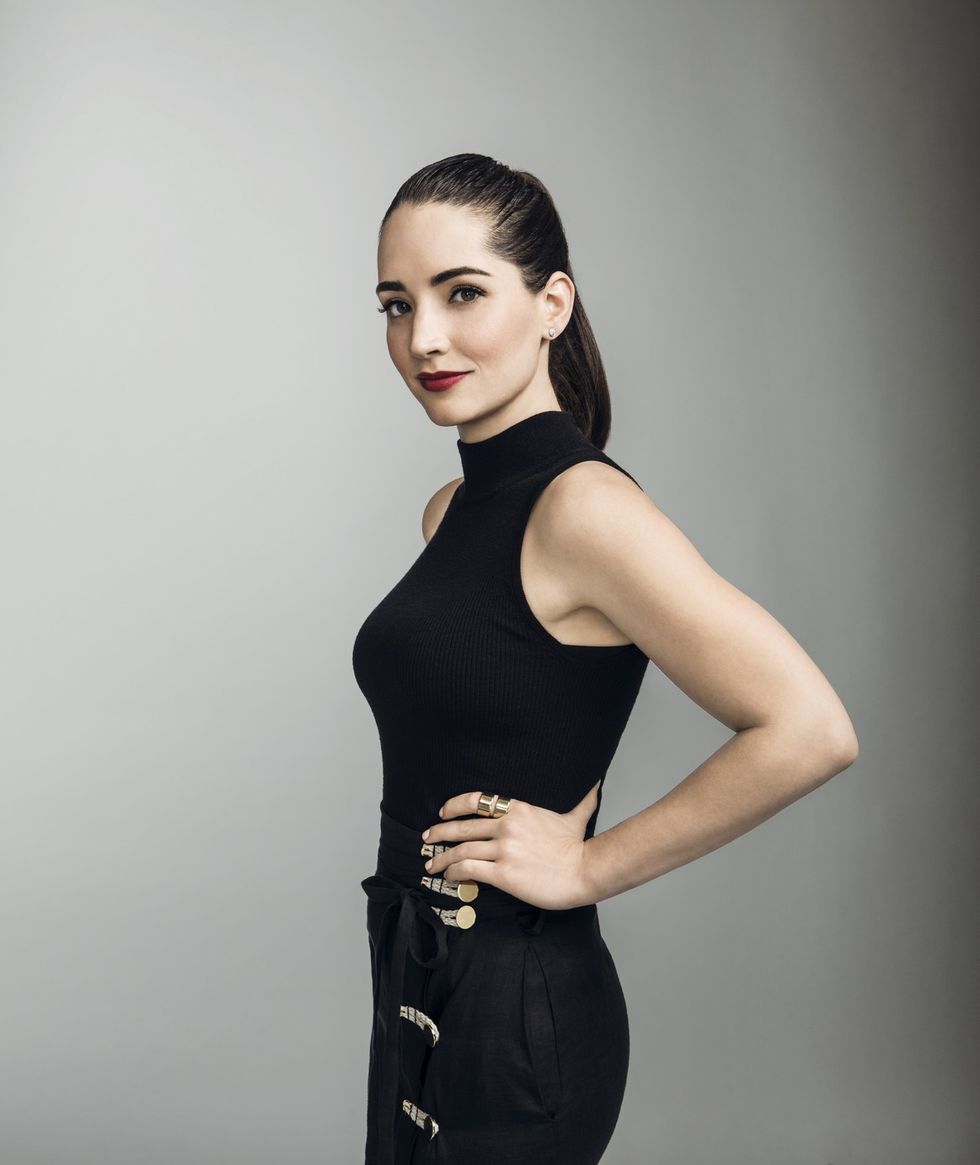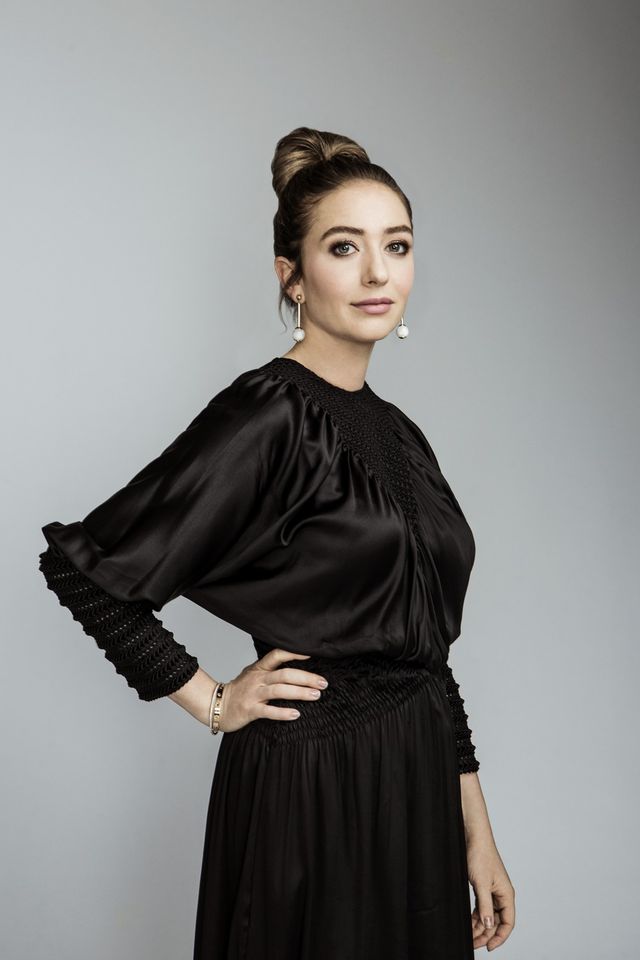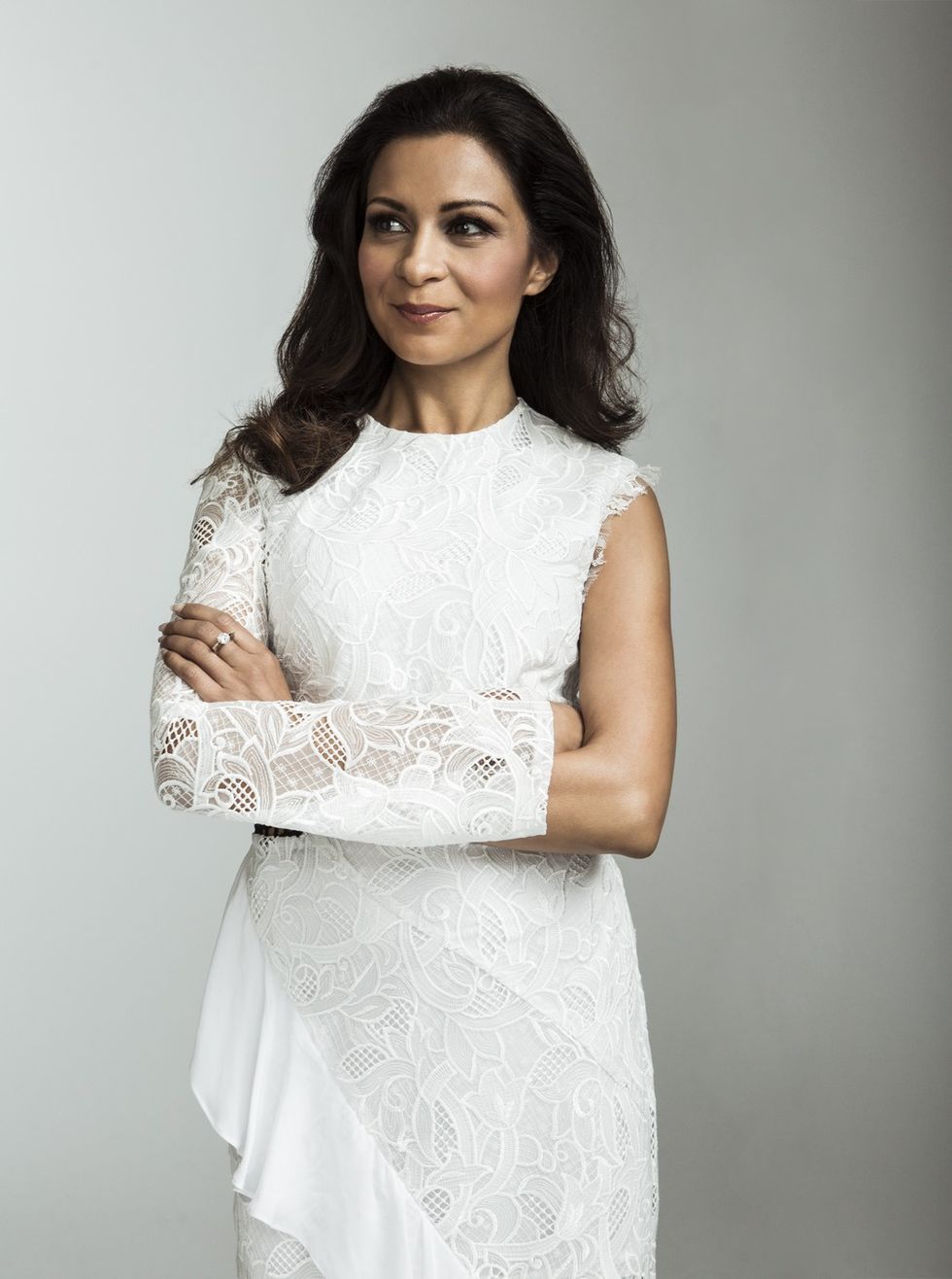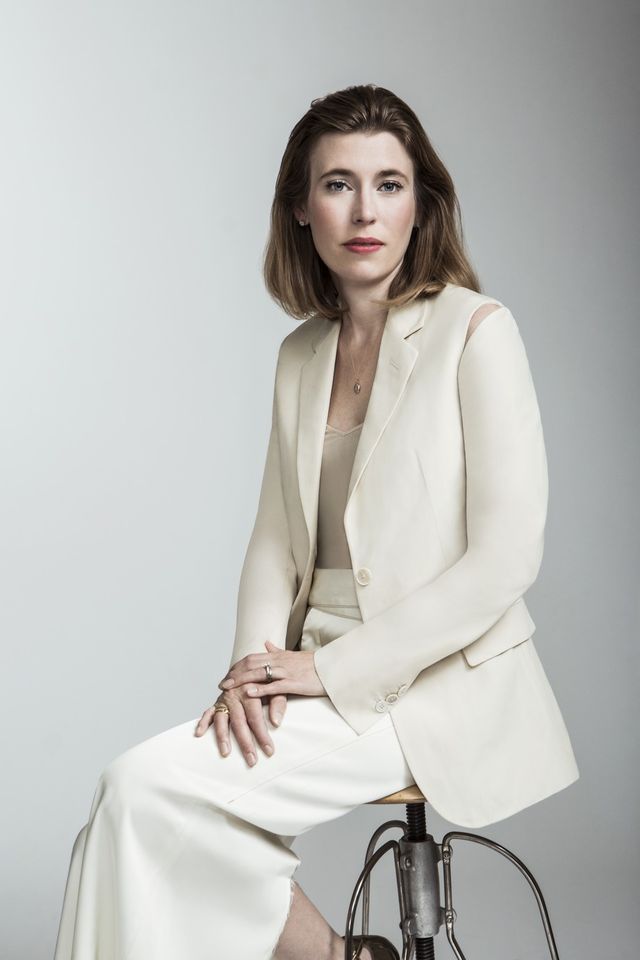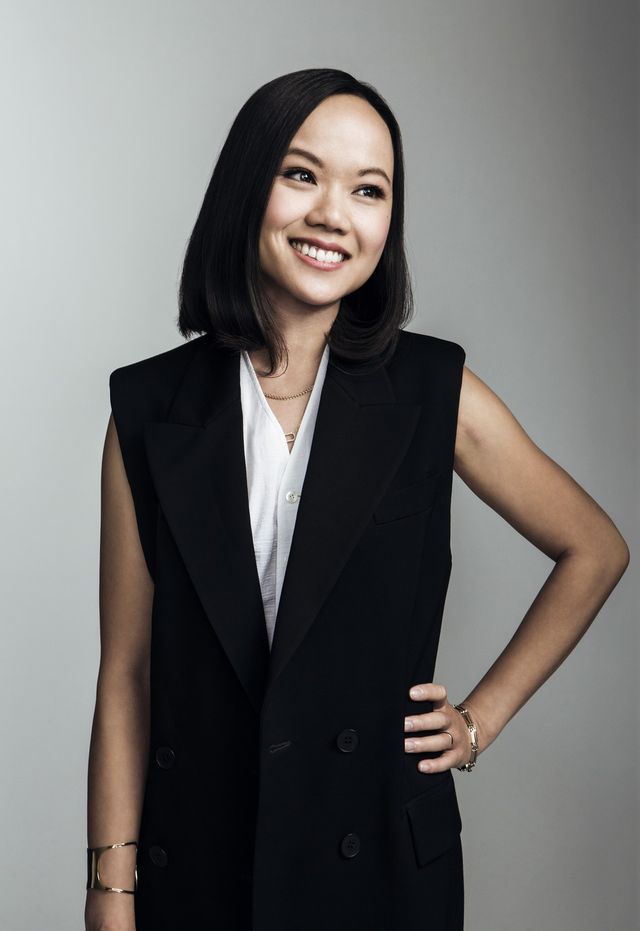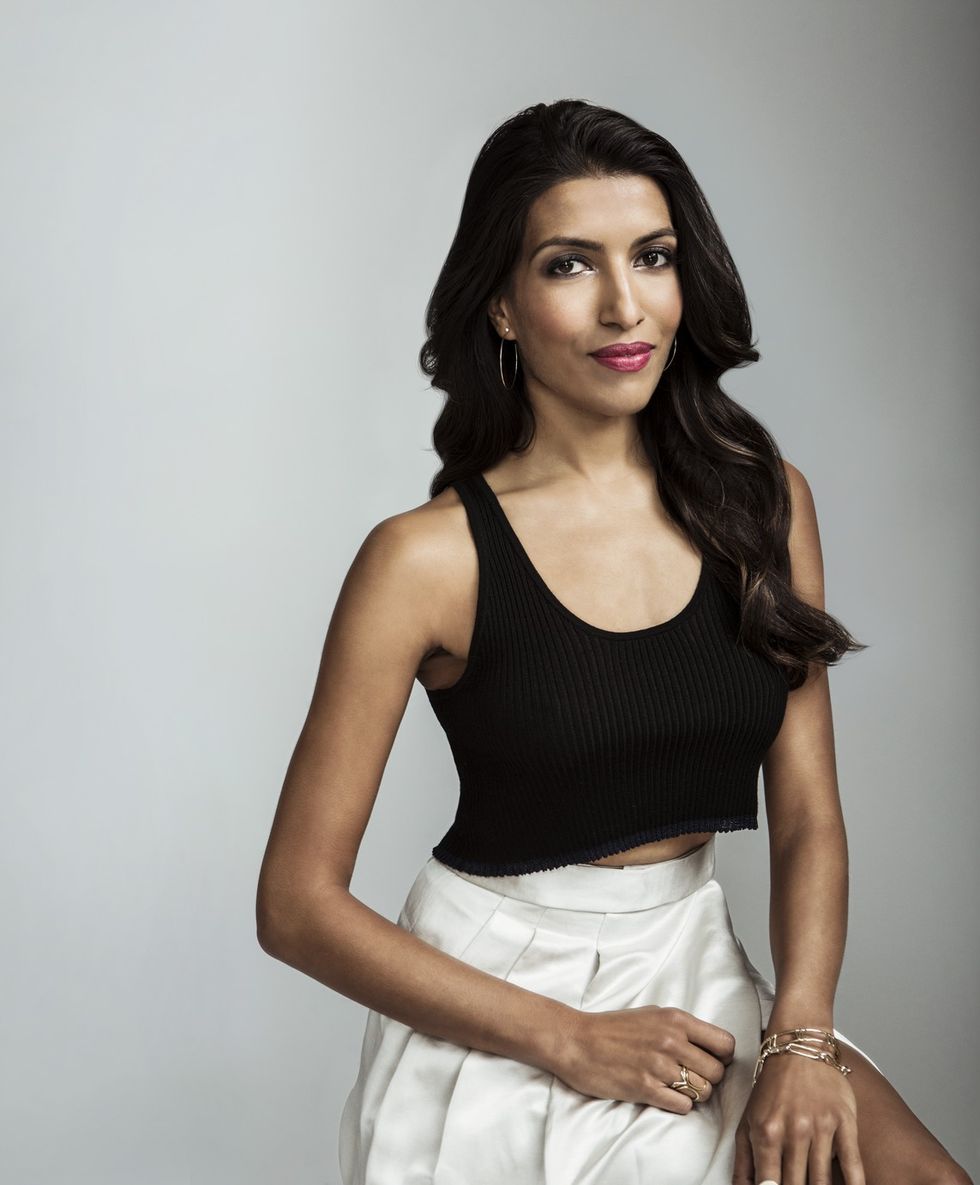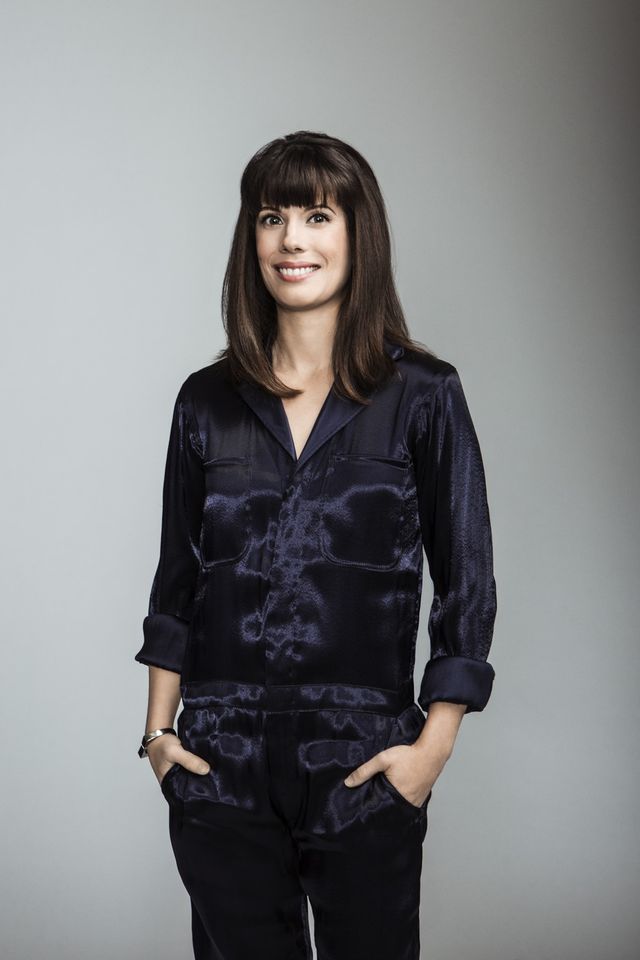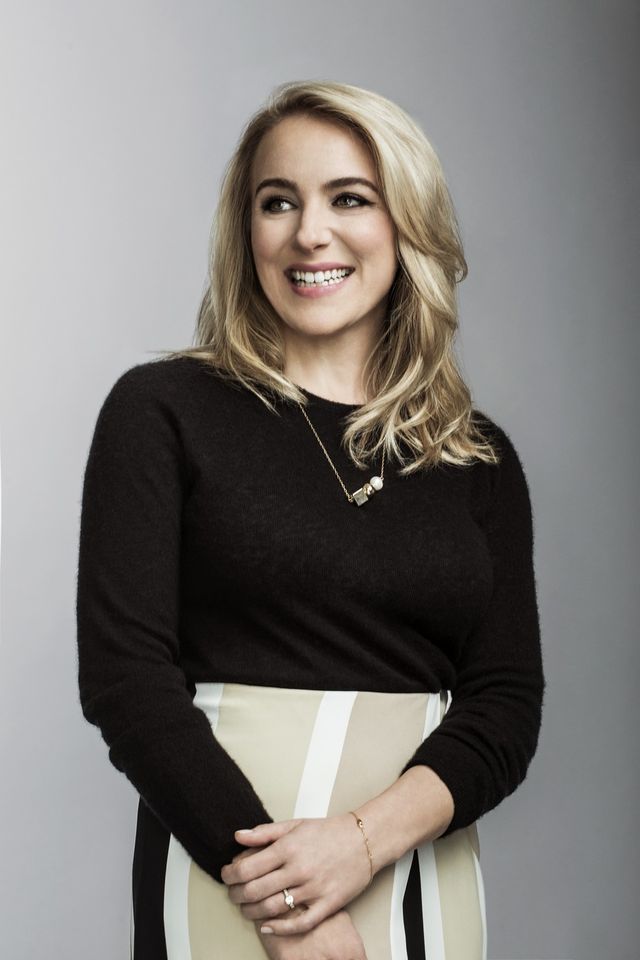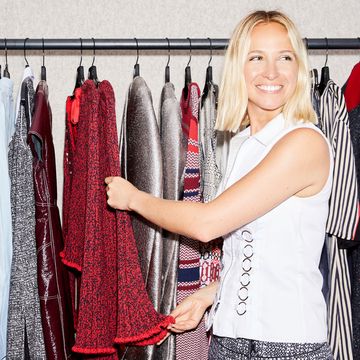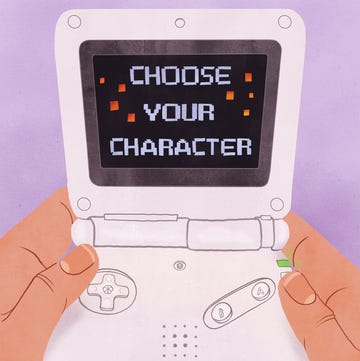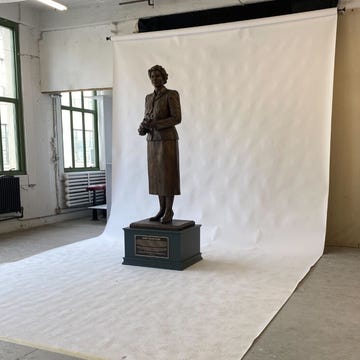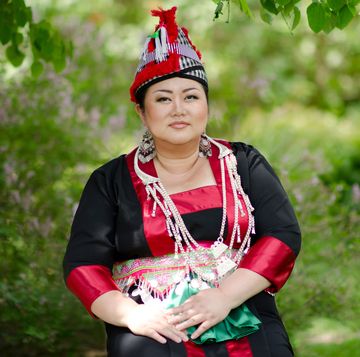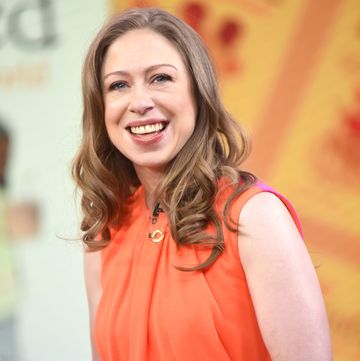This article originally appeared in the June 2016 issue of ELLE.
MARCELA SAPONE: Cofounder and CEO, Hello Alfred
Marcela Sapone, 30, spent spring break of her first year at Harvard Business School in 2013 on "start-up lockdown," a project she'd thought up that involved her and four other students testing five business ideas over five days. The concept that seemed least feasible, conceived by her classmate Jessica Beck, was a subscription service that allowed busy professionals to outsource household tasks such as grocery shopping and cleaning. "We couldn't get the economics to work," Sapone says. But she and Beck knew there had to be a market, particularly after calling high-powered businesswomen (Sapone, who grew up in Copenhagen and Paris, had previously done a two-year stint at consulting firm McKinsey) and discovering almost all had live-in nannies or housekeepers. "But if you're 26, how can you afford that?" Sapone says. "We wanted to solve the problem for us."
Hello Alfred—named after Bruce Wayne's valet—was their answer. At first, Sapone and Beck collected customers with old-school flyers tacked up around Boston and hired employees through Craigslist—or did the errands themselves. But after graduating, they raised $2 million, launched HelloAlfred.com at the 2014 Tech Crunch Disrupt conference, and became the first all-female team to win the event's start-up competition (and its $50,000 prize).
Not all press was kind ("Silicon Valley Has Officially Run Out of Ideas," read one headline), but Hello Alfred has since expanded from Boston to New York (with plans to add San Francisco and L.A. by 2017) and acquired a customer base that spends, on average, $5,000 a year per person. So is there a market? The company's customer waiting list of over 30,000 indicates a big yes.
WHITNEY WOLFE: Founder and CEO, Bumble
"After I left Tinder," says Whitney Wolfe, the only female member of that game-changing dating app's founding team, "a lot of articles came out saying I knew nothing. What better way to prove the naysayers wrong than to do it again?" The result, Bumble, which she launched in December 2014, flips the gender script by allowing only female users to make the first move. Designed to counteract the notion that, while women can pursue their dream jobs, "God forbid you text a guy first," Wolfe says, it racked up 3 million users in its first 14 months.
Wolfe's entrepreneurial streak showed itself early. She started her first business while at Southern Methodist University in Dallas—eco-friendly totes sold online (proceeds benefited the Gulf oil spill cleanup) that caught the eye of Nicole Richie and Kate Bosworth—and at 22 she joined the team that went on to create Tinder. In 2014, however, she famously resigned and filed a sexual harassment suit against the business (she can't discuss the outcome, but it was reportedly settled for $1 million). With Bumble, Wolfe's intention was to create a different kind of company—and company culture—so she moved to Austin, Texas, and hired mostly women. "With other dating products, they're like being in a nightclub at 2 A.M., where there's an expectation men will be sexually aggressive," she says. "Bumble is less predatory."
Two years in, Wolfe, 26, has learned of "Bumble babies" and has heard from numerous women that the app helped them take the initiative in many areas of their lives, not just in love. "A lot of people create products that change how we live," Wolfe says. "But to create something with a positive message at the helm, that's what we're most proud of."
ANJULA ACHARIA-BATH: Partner, Trinity Ventures
It's the rare venture capitalist who says, "Everything I do is about women." But that's the self-described mission of Anjula Acharia-Bath, 43, who throughout her career has consistently found ways to be a connector: between women and tech, tech and Hollywood, and Hollywood and Bollywood.
Raised in England, Acharia-Bath was working at a Silicon Valley executive search firm in 2006 when she and her husband started a South Asian music podcast called DesiHits. Within weeks, it had been downloaded 250,000 times. When Acharia-Bath mentioned this to a venture capitalist she knew, he responded by sending her a term sheet. "I was flabbergasted," says Acharia-Bath, who went on to build DesiHits into a company dedicated to fusing pop culture around the world. With help from Interscope's Jimmy Iovine, who became an investor, she's introduced numerous celebrities to new markets—and she even brought Lady Gaga to India for the first time. In 2013, she became Priyanka Chopra's manager, helping the Bollywood queen chart her Hollywood rise. Along the way, Acharia-Bath made some prescient investments in female-founded start-ups, like boutique workout subscription app ClassPass. "Whenever I meet talented women, I just want to help them achieve their goals," she says. "It's my calling."
Last fall, Acharia-Bath joined respected venture capital firm Trinity Partners, where she works on bringing in investors and marketing its start-up investments. But her aims reach beyond building brands: "If you see a woman on TV who looks like you, doing amazing things," she says, "maybe that makes you believe you can do anything. Maybe it's the difference between writing that business plan or not."
JEN FITZPATRICK: VP, Google Maps
Jen Fitzpatrick was getting her master's in computer science at Stanford in 1999, just as Google was launching, and once she began using the search engine, she immediately recognized its potential. "So that summer I called up and got an internship," she says. "And then I was offered a job." She's been there ever since, and while she started by writing code, she now heads up Google Maps, the app used by 1 billion people globally. Not only does Google Maps provide directions, it can track deforestation in Indonesia, find the best Cambodian restaurant in London, and even explore Caribbean shipwrecks (Google recently added an underwater version of Street View). "The central problem we're trying to solve is how to help people explore the real world," says Fitzpatrick, 39. "And the level of detail people expect Google Maps to answer about the world is rising all the time. It's a huge challenge, but it's also an exciting moment because it means we're getting information to people that really matters to their lives."
Fitzpatrick's work with Google Maps is informed by data gleaned from Google searches ("People are asking their phones ever harder questions," Fitzpatrick says) as well as by the personal experiences of the Maps team. Fitzpatrick, for example, recently got stuck in a nasty traffic jam in India with a colleague whose phone couldn't locate a cellular signal. Unable to load Google Maps, they couldn't find an alternate route—a moment that underscored, for her, the importance of improving offline functionality, which is now a high priority for her team. Also sharpening her understanding of the urgent need for better traffic data: her experience as a mother of three. "If Google Maps can save me 10 minutes," she says, "that's 10 more minutes with my kids."
TRACY YOUNG: Cofounder and CEO, PlanGrid
Tracy Young, 32, is so focused on efficiency that she switched from contacts to glasses to streamline her morning routine (now down to five minutes). So it should come as no surprise that in 2010, while working as a construction engineer, she responded to a meeting that was slowed down by only having one up-to-date set of blueprints by personally ordering 15 extra sets. The bill? $27,000. "I almost fell out of my chair," she says.
This was Young's introduction to a costly reality the industry has long grappled with: Construction companies spend $4 billion on blueprints annually. That night, Young bemoaned her bill to Ryan Sutton-Gee, another engineer. "We should be able to load blueprints on my new device!" he said, referring to the just-released iPad. This could not only save costs, they realized, but also resolve another construction difficulty: Plans change so frequently that people often end up working off incorrect drawings. If everyone were using iPads, changes could immediately be conveyed to the entire team. They recruited a software designer, Antoine Hersen, and a Pixar rendering engineer, Ralph Gootee, Young's then boyfriend (now husband), and PlanGrid was born.
In 2011, the company was accepted into the prestigious start-up incubator Y Combinator, and with Young as CEO, it has since been used on 400,000 projects in 195 countries. Its benefits—logistical and economic—are so apparent that one project manager recently told Young that learning about it felt like being taught to use fire for the first time. Top venture firm Sequoia Capital sees the same magic; they've invested $30 million. "I joke that I used to work for one superintendent," Young says. "Now I work for hundreds of thousands."
LEILA JANAH: Founder and CEO, Sama Group
"Like most entrepreneurs, I'm probably a little bit manic," says Leila Janah, who travels incessantly as part of her work running Samasource, a nonprofit that aims to alleviate poverty by providing people living everywhere from the slums of Nairobi to Haiti with digital jobs that pay a living wage. In 2012, Janah also started Samahope, the first crowdfunding site to raise money for surgeries needed by people in underserved communities (it paid for 16,917 treatments before it was acquired by Johnson & Johnson last year). And most recently, she launched Laxmi, an organic skin-care line, available soon at Sephora, that employs low-income women to harvest the main ingredient, nilotica nuts from a variety of shea tree found at the headstreams of the Nile, thus also incentivizing the conservation of the trees themselves. (Janah got the idea after using nilotica butter on her skin—it was "a miracle salve," she says.) Her goal is to use the profits to support her other endeavors, now united under the Sama Group umbrella. "It's luxury that funds social impact," she says.
Raised in L.A. and educated at Harvard, Janah, 33, has worked for the World Bank and danced the samba in the Carnaval San Francisco; as a high school senior, she spent a semester working at a school for the blind in Ghana, an experience that was consciousness-altering. "It dawned on me that the charity model is destructive, since it often involves short-term stopgaps that create a handout mentality," she says. Eventually, this became a driving ethos. "Giving stuff away is always patronizing," says Janah. "It's much better to help people be able to buy things themselves."
DEL HARVEY: Head of Trust & Safety, Twitter
Before becoming head of Twitter's Trust & Safety team, Del Harvey lifeguarded at a state mental institution pool, administered psychological tests to reality TV contestants, and posed as a child for Perverted Justice, an organization that worked with law enforcement to conduct sting operations on adults attempting to solicit minors for sex online. "It's not the most standard career path," she admits. But in 2008, when Twitter began having trouble with spam, she became the company's twenty-fifth employee.
The 34-year-old's ability to visualize the worst-case scenario, a skill acquired through her encounters with the "dark side," as she calls it, has served Twitter well as it has grown to 320 million users. And while at first she was a team of one, she now leads an entire group that focuses not only on spam but also on abusive behavior and user safety, and as such walks a tightrope between enabling freedom of speech and combating harassment and intimidation (and even terrorism—Twitter recently announced it had shut down 125,000 terror-related accounts, most linked to the Islamic State).
Due to Twitter's scale, though, sorting out what is abuse is profoundly complex. "Threats we don't allow," Harvey says. "But it's hard to draw the line. I spent the first years regularly startled to find Twitter being used in ways I never could have foreseen." Say one account regularly tweets "Hey bitch" to another. "Bitch" could be a term of endearment—or the users might be tweeting as their dogs (which Harvey has actually encountered). "A lot of people are surprised I'm not super pessimistic," Harvey says. "But the negative interactions are significantly outweighed by the positive ones. And that makes me optimistic about the future."
APRIL UNDERWOOD: VP of Product, Slack
The first computer project April Underwood ever worked on as a kid was building a spreadsheet of her baseball-card collection on Microsoft Works. She's now vice president of product at Slack, a messaging app on steroids that syncs e-mail, Twitter, Google Docs, and more than 100 other modes of work communication into one comprehensible interface. But going into tech wasn't a foregone conclusion: She arrived at the University of Texas at Austin in 1998 on a chemical engineering scholarship, but when she and the major didn't click, she left it, lost her scholarship, and took a job in Internet tech support. "That's when I got into coding," she says. "I realized if I could build Web pages to help other employees, I could spend less time talking to angry customers."
She's since worked at Google, Travelocity, and Twitter, where she rose to become director of product, then left in February of 2015 to form the all-female angel investing network #Angels. Five months later, she joined Slack, just as it passed the 1.1 million active-user mark (Underwood is such a star that the announcements about her hiring and Slack's growth were received by the tech industry as equally important indications of the company's upward momentum). Today, Slack has 2.7 million active daily users and a valuation of $3.8 billion. Underwood, 36, who was promoted to VP of product last December, is in charge of figuring out which features to introduce next, and has an $80 million fund at her disposal to invest in third-party apps that complement Slack's technology. "I used to enjoy following an instruction set," she says. "But at Slack, there's no checklist. Now what I enjoy most is the creative process that comes with building things out of nothing."
